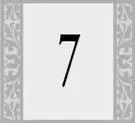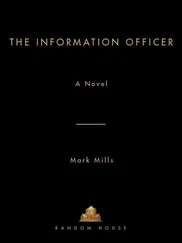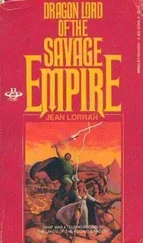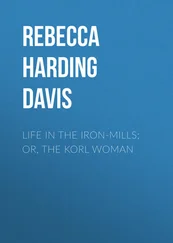Mark Mills - The Savage Garden
Здесь есть возможность читать онлайн «Mark Mills - The Savage Garden» — ознакомительный отрывок электронной книги совершенно бесплатно, а после прочтения отрывка купить полную версию. В некоторых случаях можно слушать аудио, скачать через торрент в формате fb2 и присутствует краткое содержание. Жанр: Старинная литература, на английском языке. Описание произведения, (предисловие) а так же отзывы посетителей доступны на портале библиотеки ЛибКат.
- Название:The Savage Garden
- Автор:
- Жанр:
- Год:неизвестен
- ISBN:нет данных
- Рейтинг книги:4 / 5. Голосов: 1
-
Избранное:Добавить в избранное
- Отзывы:
-
Ваша оценка:
- 80
- 1
- 2
- 3
- 4
- 5
The Savage Garden: краткое содержание, описание и аннотация
Предлагаем к чтению аннотацию, описание, краткое содержание или предисловие (зависит от того, что написал сам автор книги «The Savage Garden»). Если вы не нашли необходимую информацию о книге — напишите в комментариях, мы постараемся отыскать её.
The Savage Garden — читать онлайн ознакомительный отрывок
Ниже представлен текст книги, разбитый по страницам. Система сохранения места последней прочитанной страницы, позволяет с удобством читать онлайн бесплатно книгу «The Savage Garden», без необходимости каждый раз заново искать на чём Вы остановились. Поставьте закладку, и сможете в любой момент перейти на страницу, на которой закончили чтение.
Интервал:
Закладка:
"Why do you say that?"
"It's a bad place."
"A bad place?"
"It always has been. People have a tendency to die there."
Adam couldn't help smiling at the melodramatic statement.
"You think I'm joking?"
"No . . . I'm sorry. You mean Signora Docci's son?"
"You heard about Emilio?"
"Not much. Only that he was killed by the Germans during the war."
Fausto crushed his cigarette in the ashtray. "So the story goes."
There was no time for Adam to pick him up on this last comment.
"Out!" trumpeted Signora Fanelli, advancing toward them wielding a broom.
Fausto turned to meet his attacker. "Letizia, you are a beautiful woman. If I were a richer man I would try to make you my wife." "Ahhhh," she cooed sweetly. "Well, you're about to become even poorer. Three bottles of wine."
"I'll pay," said Adam.
"He'll pay," said Fausto.
"No he won't," said Signora Fanelli.
Fausto delved into his pocket, pulled out some crumpled notes and dropped them on the table. "Good night, everybody," he said with the slightest of bows. "Fausto is no more."
He left via the terrace, the life somehow draining out of the room along with him.
Signora Fanelli set about stacking chairs on the tables. "Fausto, Fausto," she sighed wearily. "You mustn't take him too seriously, he's a bit depressed at the moment."
"Why?"
"The Communists did not do well at the election in May . . . only twenty-two percent, the poor things," she added with a distinct note of false sympathy.
Twenty-two percent sounded like a not inconsiderable slice of the electorate.
"You're not a Communist?" Adam asked.
"Communism is for young people with empty stomachs. Look at me."
He had been, quite closely, and he would happily have paid her the compliment she was fishing for if the Italian words hadn't eluded him.
"Fausto isn't so young," he said.
"Fausto was born an idealist. It's not his fault."
He had wanted to sit there, chatting idly, observing the play of her slender hips beneath her dress as she worked the broom around the tables. But she had dispatched him upstairs with a bottle of mineral water and firm instructions to drink the lot before bed.
This he had failed to do.
Instead, he had flopped onto the mattress and set about constructing a gratifying little scenario in his head. His last memory before drifting into drunken slumber had been of Harry barging into the room just as Signora Fanelli was peeling off an emerald green chenille bathrobe.

THE WALK TO VILLA DOCCI FAILED TO CLEAR HIS HEAD; all it did was shunt the pain from the front of his skull to the back of it, where, he knew from hard experience, it would remain lodged for the rest of the day. The heat was building fast under a cloudless sky, and his shirt was clinging to him by the time he arrived.
He had anticipated having to force a decision on himself. In the end, it came naturally, when he was not even halfway through his brisk tramp around the memorial garden.
There was something not quite right about the place, and this was where its appeal lay. There were no great questions clamoring for answers; they were more like restless whispers at the back of his mind.
According to the records, Flora had died in 1548, the year after Villa Docci's completion, so why had her husband waited almost thirty years—till the very end of his own life—to lay out a garden to her memory? Then there were the small anomalies within the garden itself, not exactly discordant elements, but somehow out of keeping with the mood and tone of the whole. Why, for example, the triumphal arch on which Flora's name was carved in its Italian form? It was such a pompous piece of architecture, crowning the crest above her like some advertising. At no other point in the itinerary did the garden look to declare its purpose. Rather, it encrypted it in symbols and metaphors and allegory.
He was honest enough to know that a more pragmatic consideration was also pushing him toward a study of the garden over the villa: the file prepared by Signora Docci's father. It offered a model from which to work, a template for his own thesis, a document easily massaged, expanded, made his own with the minimum of effort. It was short, and a tad dry, but thorough in its scholarship. There were numerous references in both the text and the footnotes, most of them relating to books or original documents to be found in the library. It would take a few days, but all of these would have to be checked out first, their suitability as potential padding material carefully assessed.
Retreating to the cool of the villa, he found Maria prowling around, marshaling a couple of browbeaten cleaning ladies and handing out chores to Foscolo, the saturnine handyman.
Adam set up shop in the study. Light and lofty, it occupied the northwest corner of the building just beyond the library, with French windows giving onto the back terrace. Unlike the other rooms of the villa, which were plainly and sparsely furnished, the study was crowded with furniture, paintings, objects and books— as if all the incidental clutter conspicuously absent from the rest of the villa had somehow gathered here.
On the wall beside the fireplace was the small portrait panel of Federico Docci that Signora Docci had mentioned to him the previous day. It showed a handsome man of middle years whose sharp features were only just beginning to blunt with age. He was represented in half length, seated in a high-backed chair, his hands resting lightly on a book, and through a window in the wall behind him, hills could be seen rolling off to a distant ocean. Painted in three-quarter face, there was something fiercely imperious in the tilt of his head and the set glare of his dark, slanting eyes. And yet the suspicion of a smile played about his wide and generous mouth—a contradiction that seemed almost self-mocking, attractively so.
A vast glazed mahogany cabinet filled the wall behind the desk. Its lower shelves were given over to books, the majority of them relating to the Etruscans. A large section was devoted to anthropological texts. These were in a variety of languages—Italian, French, English and Dutch—and were decades old. The upper shelves of the cabinet were home to all manner of strange objects, mostly of an archaeological nature: clay figurines, bronze implements, bits of pottery, fragments of stone sculpture and the like. On the very top shelf were two skulls, their hollow eye sockets deep pools of shadow behind the glass.
Adam opened the cabinet door and, with the aid of some steps from the library, found himself face to face with the macabre display. They weren't human skulls, but they weren't far off—primates of some kind. Although similar in size, there were distinct differences. The skull on the left was narrower and less angular. Its partner had longer canines, jutting cheekbones and a bony crest rising across the skull from ear to ear, met at its apex by two ridges running from the sides of the eye sockets.
Adam reached out and ran his hand over the skull, his fingers tracing the cranial ridges.
That's when he heard the footsteps.
He turned to see Maria enter the study from the terrace. The reproachful cast of her eye would have driven him from the library steps if he hadn't already been descending.
"Very interesting," he said pathetically, nodding behind him.
"Would you like some coffee?"
"Yes, thank you."
Maria stopped and turned at the door to the library. "Orango-tanghi," she said, her eyes flicking to the skulls.
"Oh," he replied in English. "Right."
The moment she was gone, he reached for the dictionary.
Читать дальшеИнтервал:
Закладка:
Похожие книги на «The Savage Garden»
Представляем Вашему вниманию похожие книги на «The Savage Garden» списком для выбора. Мы отобрали схожую по названию и смыслу литературу в надежде предоставить читателям больше вариантов отыскать новые, интересные, ещё непрочитанные произведения.
Обсуждение, отзывы о книге «The Savage Garden» и просто собственные мнения читателей. Оставьте ваши комментарии, напишите, что Вы думаете о произведении, его смысле или главных героях. Укажите что конкретно понравилось, а что нет, и почему Вы так считаете.











